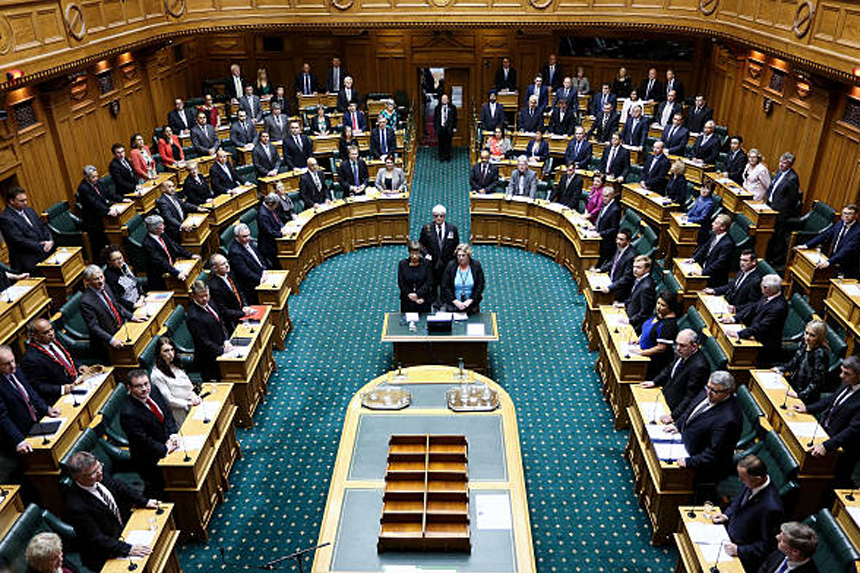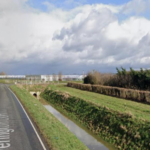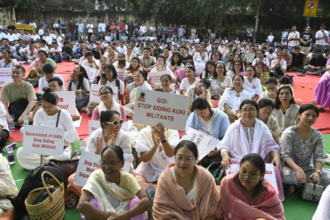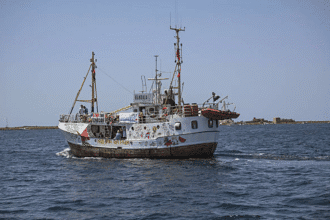Following a haka in opposition against a contentious measure attempting to redefine the original Treaty of Waitangi with Māori people, New Zealand’s parliament was momentarily adjourned. Led by opposition party MP Hana-Rawhiti Maipi-Clarke, the action took place during a tense parliamentary debate on the first reading of the measure, which has generated solid national discussion.
- Why Did M.P.s Protest with a Haka, and How Is the Bill Dividing the Nation?
- What Is the Controversial Bill, and How Does It Seek to Redefine Treaty Principles?
- What Are Critics Warning About Potential Division and Loss of Māori Support?
- Why Is the Hīkoi Considered a Symbol of Resistance?
- What Principles Would the Bill Legally Define, and How Would This Shift Legal Interpretation?
- How Has the Waitangi Tribunal Responded to the Bill?
- What Broader Government Measures Are Impacting Māori Rights?
- Hy Is the Treaty of Waitangi So Complex and Contentious?
- What Are the Next Steps for the Treaty Principles Bill?
Why Did M.P.s Protest with a Haka, and How Is the Bill Dividing the Nation?
Dramatic action occurred when Maipi-Clarke was asked whether her party had approved the measure. She responded by starting the ceremonial haka, a Māori dancing form. The symbolic act coincided with the arrival of a hīkoi (peaceful protest march) headed towards Wellington, the capital, under the direction of a Māori rights group.
Starting from the summit of New Zealand earlier in the week, thousands of people joined the 10-day march, which arrived in Auckland on Wednesday.
The bill, pushed by the Act Party, has become a hot topic in New Zealand’s continuous Māori rights debate. Although New Zealand is sometimes regarded as a trailblazer in indigenous rights, detractors of the measure contend that it compromises those rights.
What Is the Controversial Bill, and How Does It Seek to Redefine Treaty Principles?
The Act Party introduced the bill and contended that formally defining the 1840 Treaty of Waitangi terms is desperately needed. The treaty is a historic agreement between the British Crown and Māori tribes that forms the basis of New Zealand’s race relations.
Its ideas have been included in the nation’s legal system over the years to correct past injustices done to Māori during colonization.
However, the Act Party, a component of the center-right coalition that rules New Zealand, argues that racial tensions have resulted from the treaty’s terms. They contend that the bill would allow parliamentary procedures to provide a fairer reading of the treaty than the courts.
Act Party leader David Seymour clarified that the bill aims to “define what the principles of the Treaty of Waitangi mean in a way that is fair to all New Zealanders.” “The current system of interpretation has allowed for the development of principles which, in our view, do not treat everyone equally,” he said.
What Are Critics Warning About Potential Division and Loss of Māori Support?
Critics, however, worry the measure will widen rifts in the nation and undermine the support Māori communities have developed over decades of legislative change. “This bill will undo the advancement we have made in terms of support for Māori,” stated a marcher attending Auckland’s hīkoi. “Te Tiriti [the Treaty of Waitangi] is central to our national identity, not just a piece of paper.”
Leading the haka demonstration in parliament, Maipi-Clarke was eventually suspended from the House for her activities as vote-related emotions boiled. The law passed its first reading with backing from the ruling coalition despite the suspension, but it is expected to encounter significant obstacles in the future. Partners of Seymour’s coalition have already said they will not support the measure at its second reading.
Why Is the Hīkoi Considered a Symbol of Resistance?
Drawing thousands of supporters, the hīkoi represents the resistance to the bill and the mounting worry about the future of Māori rights in New Zealand. Families and Indigenous groups, among other marchers, have voiced their want for a more inclusive and respectful interpretation of the Treaty of Waitangi. “I marched to underline how crucial Te Tiriti is to our national identity,” stated a hīkoi participant.
“I was hoping it would be big, but it was much more epic than I expected,” one Māori woman joining the march remarked with her two sons. Walking over the Auckland Harbour Bridge alongside thousands of people in a gesture of support for Māori rights, she
Attending alongside her boyfriend and daughter, another Māori tribe member, Ngā Puhi, underlined the significance of the demonstration, saying, “We are here for the respectful and inclusive nation we want Aotearoa [New Zealand] to be for our tamariki mokopuna – our children and grandchildren.”
Opposing the proposed modifications to the bill, a Māori marcher said the present treaty terms “already a compromise for our people.” She said with great clarity, “I would not support a rewrite.”
What Principles Would the Bill Legally Define, and How Would This Shift Legal Interpretation?
The proposed law aims to specify three main ideas of the Treaty of Waitangi formally:
The government has the legitimate authority to rule, and the parliament has the right to create laws.
The Crown’s commitment to uphold Māori rights.
Equality before the law guarantees that every person has legal entitlement to equal protection.
As New Zealand’s associate justice minister, Seymour contends the present legal system, created over time by the courts, has led to ideas that go against the goal of equal rights for all people to arise. One of the divisive topics Seymour brings up is the “ethnic quotas” used in public institutions, which he says go against the justice for all New Zealanders ethos.
How Has the Waitangi Tribunal Responded to the Bill?
The measure has been attacked by the Waitangi Tribunal, an independent body established in 1975 to investigate claims of Treaty of Waitangi breaches. It says the law “intentionally excluded any consultation with Māori, breaching the principle of partnership, the Crown’s good-faith obligations, and the Crown’s duty to actively protect Māori rights and interests.”
The Tribunal also said that the proposed modifications would “cause significant prejudice to Māori” and that the ideas expressed in the bill misinterpret the Treaty of Waitangi.
What Broader Government Measures Are Impacting Māori Rights?
The Treaty Principles Bill’s introduction comes after several recent government actions directly affecting Māori people. Among these actions is the closing of the Māori Health Authority, created by the Labour government headed by Jacinda Ardern to correct health disparities. Another controversial action is the government’s choice to give English top priority over Māori when naming official government agencies.
Though they account for about 18% of New Zealand’s population, Māori still suffer systematic inequalities in sectors, including health, education, income, and incarceration rates. Māori’s life expectancy constantly lags seven years behind the average population.
Hy Is the Treaty of Waitangi So Complex and Contentious?
Signed in 1840 between the British Crown and several Māori tribes, the Treaty of Waitangi continues to be a pillar of New Zealand’s legal and cultural foundation. But since it was written in both English and Māori and the two versions differ in major respects, it is a very divisive paper. Land ownership is one of the most divisive problems; the Māori version of the treaty differs from the English translation on this issue.
Though the treaty itself is not written in law, its ideas have been included in several laws, therefore impacting policies and legal decisions that affect Māori’s rights and interests.
What Are the Next Steps for the Treaty Principles Bill?
After the first reading passes, the Treaty Principles Bill will be forwarded to a select committee for a six-month public hearing, where it will most certainly remain under heavy examination and discussion. The result of this process is unknown as the nation works to balance its dedication to Māori rights with the more general objectives of national unity and fairness.
The hīkoi reminds us that the discussion over the Treaty of Waitangi is far from finished. It will be a significant concern in New Zealand’s political and social scene for years as it keeps marching towards Wellington.
Japan’s Ruling Party Loses Parliamentary Majority, A Severe Judgment from Voters








